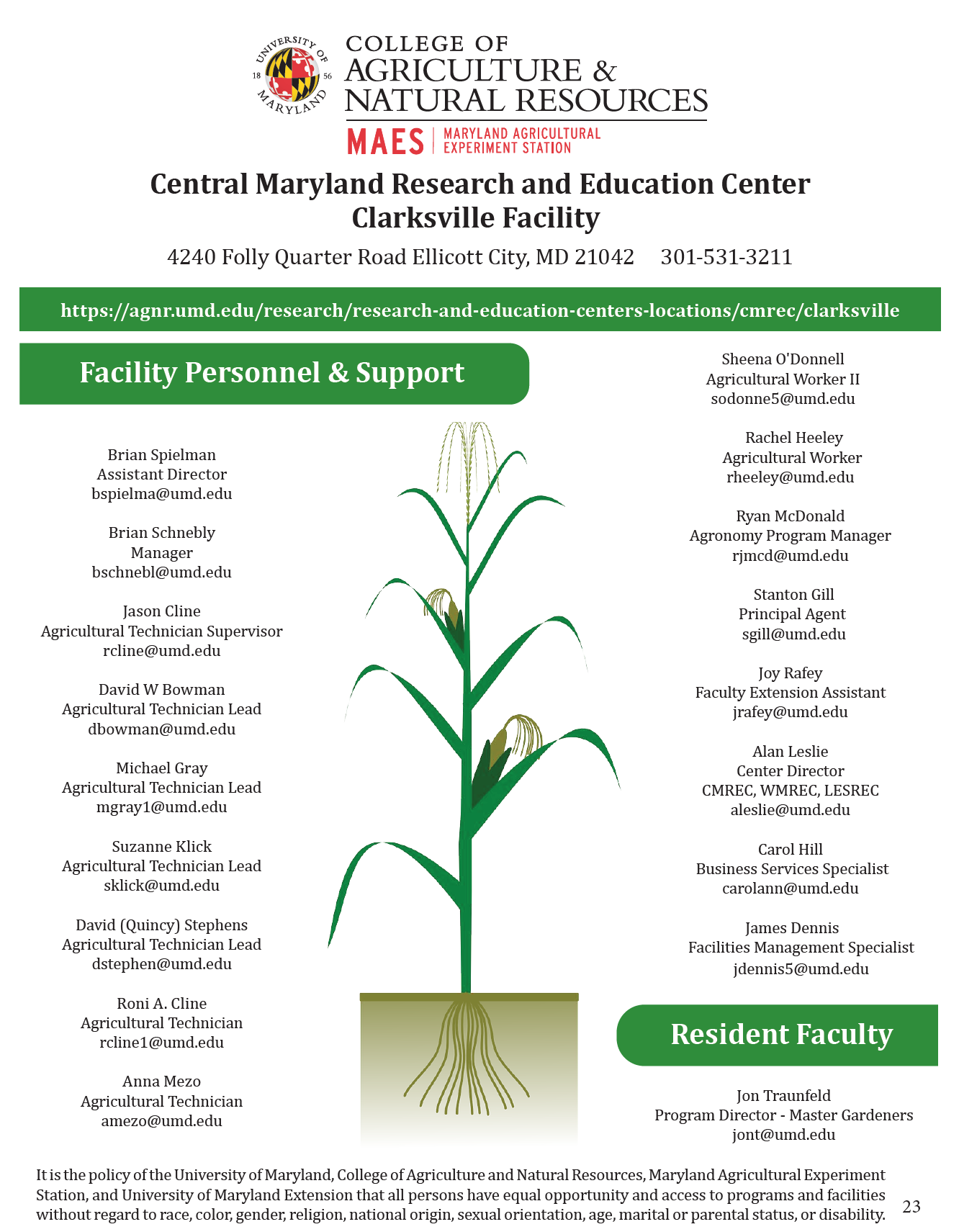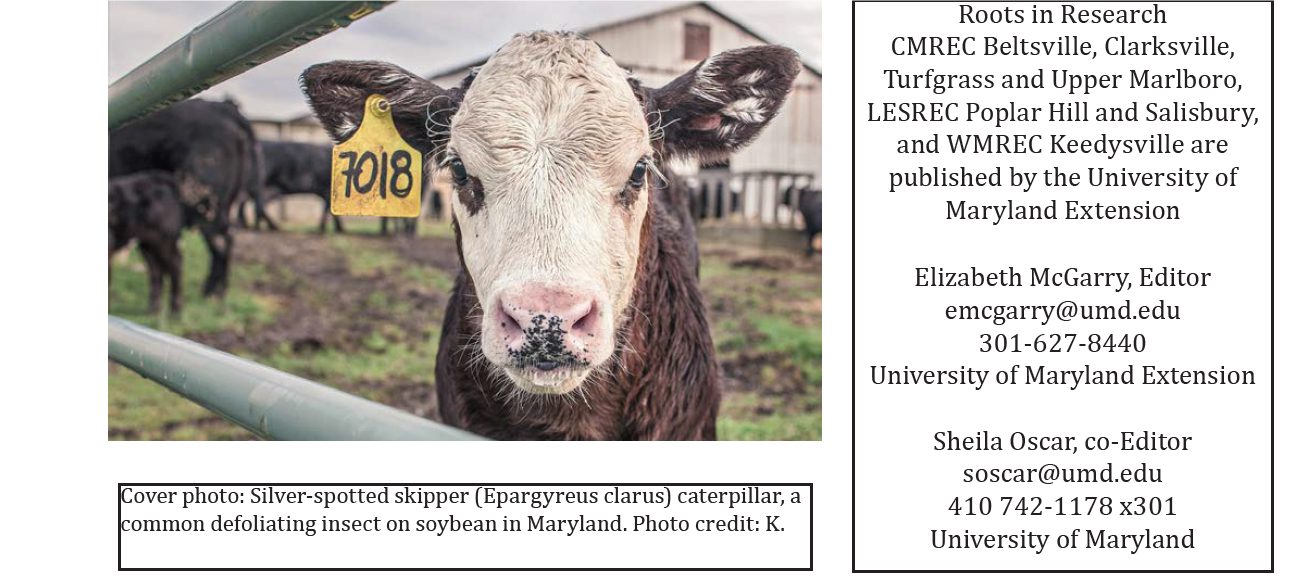'ROOTS IN RESEARCH' Newsletter
CMREC Headquarters - Clarksville Facility - Yield of 2022
We are proud to present you with the first edition of a series of annual newsletters showcasing the university of applied research and hands-on educational programming that happen at the University of Maryland Research and Education Centers across the state. These facilities provide a living-laboratory space to carry out research addressing the real-world problems facing our farmers from issues like invasive species, climate change, economics, and environmental conservation. The information produced from these research projects is shared with the scientific community and directly to the public through journal articles, extension newsletters, and many other formats, but compiling summaries of all of the work done at each facility in one publication here gives a snapshot of how many projects are carried out at each research farm every year. Here, we have compiled reports on the 2022 projects at the Central Maryland Research and Education Center (CMREC) in Clarksville. CMREC Clarksville is unique among the RECs, because it is home to the UMD dairy herd, a working dairy milking around 75 cows, 7 days a week, 365 days a year. This facility was historically known as the forage research facility, but now supports research in the areas of dairy nutrition, nutrient management, grain crop production, wheat breeding, and even commercial horticulture, among others. This research facility continues to see transformation with new partnerships and growth of research and extension activities. We hope you enjoy reading about the breadth of different projects, and gain some insight on the value of the work carried
out at the RECs each year.
__________________________________________________________________________________________________________________________________________________
Clarksville Weather Station
Weather data for CMREC's Clarksville Facility is on our website. The information can be displayed by month, or by the year in a printable format. To compare weather data averages by the month or year, check out our website! If your research requires this data in a different format, please contact Sheila Oscar (soscar@umd.edu) and she will help to get the information you are requesting.
_______________________________________________________________________________________________________________
MARYLAND FARM & HARVEST (MPT)
Dirt! USDA-NRCS soil scientist, Dr. Annie Rossi-Gill, CPSS, shows how farmers adapt to different soil types, including MD State soil, Sassafras.
Season 10 Episode 4, Aired: 12/06/22
Video has closed captioning.
____________________________________________________________________________________________________
CMREC Turfgrass Evaluation Trials
David L. Clement, Ph.D., Extension Specialist, Plant Pathology, University of Maryland Extension
One of the most crucial decisions made during the establishment of a turf is the proper selection of seed or seed mixtures. Turfgrasses must be selected according to their adaption to the particular site and intended use. Read more>>
____________________________________________________________________________________________________
Role of Rhizobial Diversity for Drought and Herbivory Tolerance in Soybean
Brendan Randall (PhD student), Kelsey McGurrin (Faculty Specialist), and Karin Burghardt (Assistant Professor)
Research team: Burghardt lab members from the Department of Entomology in collaboration with Smithsonian Environmental Research Center and UNC-Greensboro researchers, and Dr. Nicole Fiorellino (Director of the UMD soybean variety trial).
Increasing the diversity of soil bacteria interacting with a plant may help decrease insect herbivory, especially during droughts. Read more>>
___________________________________________________________________________________________________________________________________
Efficacy of Organic Turf and Landscape Herbicides in Montgomery County, Maryland
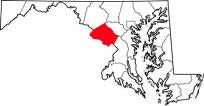
Kelly Nichols | kellyn@umd.edu | University of Maryland Extension
Background
In 2019, a law went into effect in Montgomery County in central Maryland which prohibited the use of synthetic pesticides on home lawns. In order to provide additional information to the lawn care industry in the county, a preliminary study was conducted in the fall of 2022 to compare the efficacy of a few organic herbicides. Read more>>
___________________________________________________________________________________________________________________________________
Rose Rosette Disease Trial
David L. Clement, Ph.D., Extension Specialist, Plant Pathology, University of Maryland Extension
Rose rosette disease (RRD) was first identified in the 1940s in the Rocky Mountains. Rosa species and hybrids are the only known hosts for the disease. Multiflora rose (Rosa multiflora) is a common wild host of RRD and the disease has spread throughout much of the U.S. on multiflora and other wild roses. The disease has been found in cultivated roses in Maryland and in many other states in the mid-Atlantic region. There is no cure and RRD is lethal to almost all cultivated roses. To prevent disease spread all symptomatic roses should be destroyed. Despite challenges, roses are irreplaceable and should continue to be used in landscape plantings.
In 2018 a rose was observed in the median along route 40 near Catonsville, MD that was still alive despite all surrounding roses having succumbed to RRD. The rose was subsequently dug up and transplanted to the CMREC farm in Clarksville for further observation and testing. All tests have proven negative to date and this rose is being saved for possible future breeding and release as a resistant rose choice for Maryland landscapes.
__________________________________________________________________________________________________________________________________
Assessment of ecosystems services provided by arthropods on farms: Preliminary use of sticky traps to sample flying insects
Helen Craig, Anthony Righter, and Bill Lamp Department of Entomology, University of Maryland
Background:
Insects are responsible for many ecosystem services, such as pollination, biocontrol, decomposition, nutrient cycling, water filtration, bioturbation, habitat formation, food production, pharmaceuticals, cultural services, and more. It has been calculated that insects have an annual value of at least $70 billion for their ecosystem services (Losey and Vaughan, Bioscience 56 311-323, 2006). Read more>>
______________________________________________________________________________________
2022 Maryland Soybean Fungicide Efficacy Trials
Andrew Kness, Senior Agriculture Extension Agent, University of Maryland Extension, akness@umd.edu
Fungicides are becoming increasingly popular in full season soybean production. Land grant institutions across the US and in surrounding states have robust applied research programs where industry ag chemical companies submit new products and formulations for testing for the management of soybean diseases; such a project has been absent in Maryland for several years, creating a dearth in knowledge of fungicide efficacy for our soybean producers in Maryland. Read more>>
___________________________________________________________________________________________________________________________________
UMD Bee Lab and the New UMD Bee Squad
https://www.umdbeelab.com/ https://umdbeesquad.com/
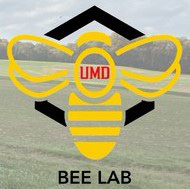 About The Lab
About The Lab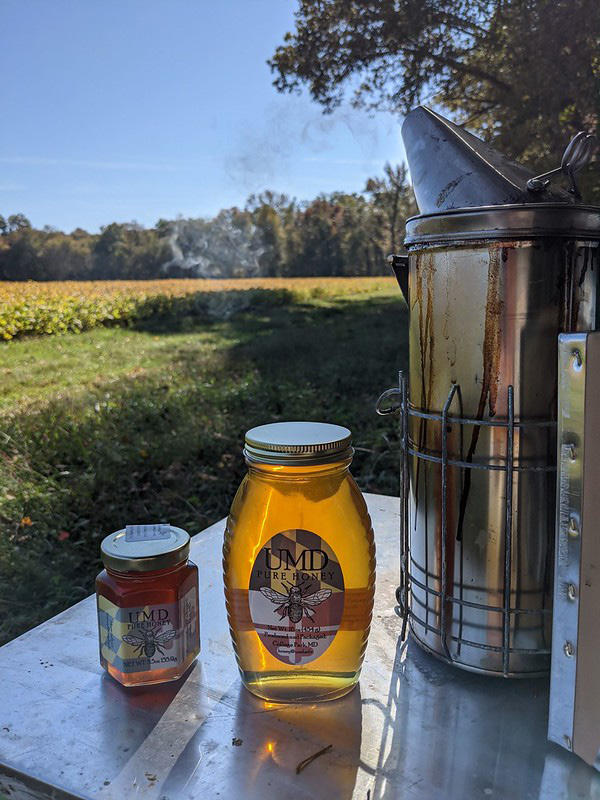
The Honey Bee Lab at the University of Maryland has diverse personnel with multidisciplinary scientific backgrounds who bring a fresh perspective to solving problems. Research in the laboratory is focused on an epidemiological approach to honey bee health. We are proud to share our research into the major mechanisms that are responsible for recurring high loss levels in honey bee populations, such as pests and pathogens associated with honey bees, loss of natural forage habitat due to large monocultural croplands, and pressure from human induced changes in the environment.
Our team has led and managed the USDA APHIS National Honey Bee Disease Survey since 2009. We are also a major partner and founding member of the Bee Informed Partnership (BIP), who collaborates closely with beekeepers from across the country to study and better understand the loss in honey bee colonies in the United States.
You can find Realtime results about these efforts at our database portals: https://research.beeinformed.org/state_reports/. Click here to purchase UMD Honey
Donations
If you are able to help support our mission to improve honey bee health, we greatly appreciate whatever you can give.
You may donate online using the University of Maryland "Giving to Maryland" Honey Bee Lab Donation Site. Thank you for your support!
________________________________________________________________________________________________________________________________
Evaluation of Growth-Promoting Products for Soybean Production
Andrew Kness, Agriculture Extension Agent, University of Maryland Extension, akness@umd.edu
Soybean farmers have had many new products come on the market in recent years touted as growth-promoting products intended to help growers attain high-yielding soybeans. Many of these products contain growth regulators, hormones, humic acids, carbon, sugars, and/or fertilizer. Read more>>
_________________________________________________________________________________________________________________________________

2022 Maryland State Soybean Variety Trials Fact Sheet
http://www.psla.umd.edu/extension/md-crops
The University of Maryland offers a fee-based, soybean variety performance testing program to local and national seed companies. The results from these replicated trials provide agronomic performance information about soybean varieties tested at four locations in Maryland considered representative of the state’s geography and weather conditions
Click here to view the Agronomy Fact Sheet #32
___________________________________________________________________________________________________________________________________
